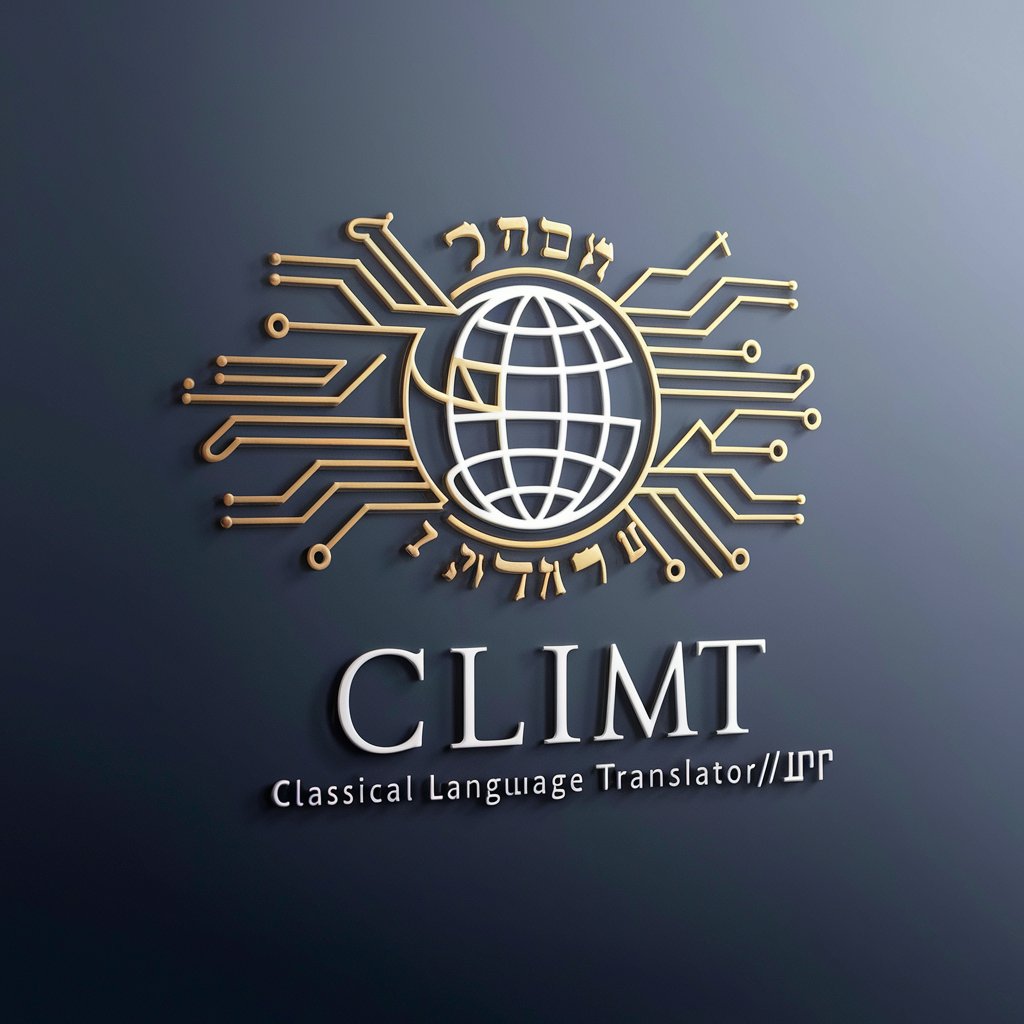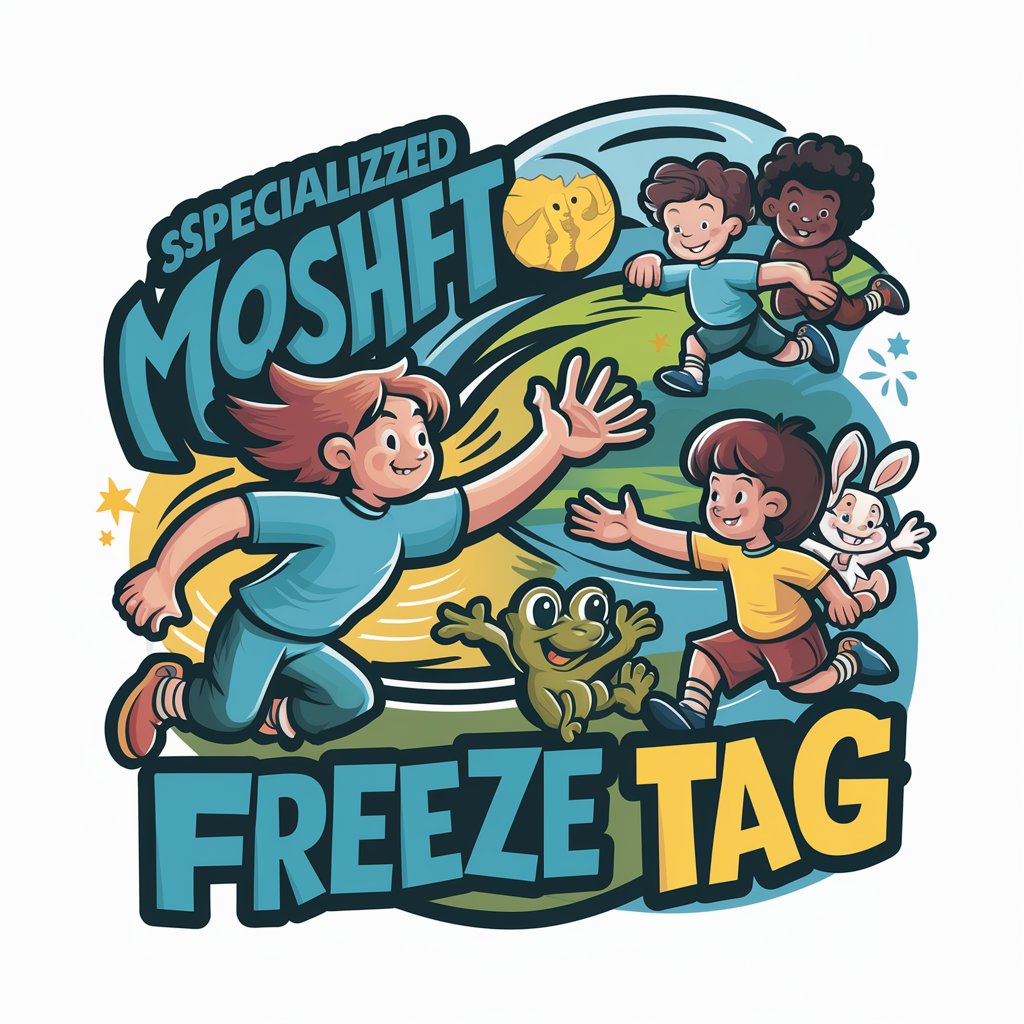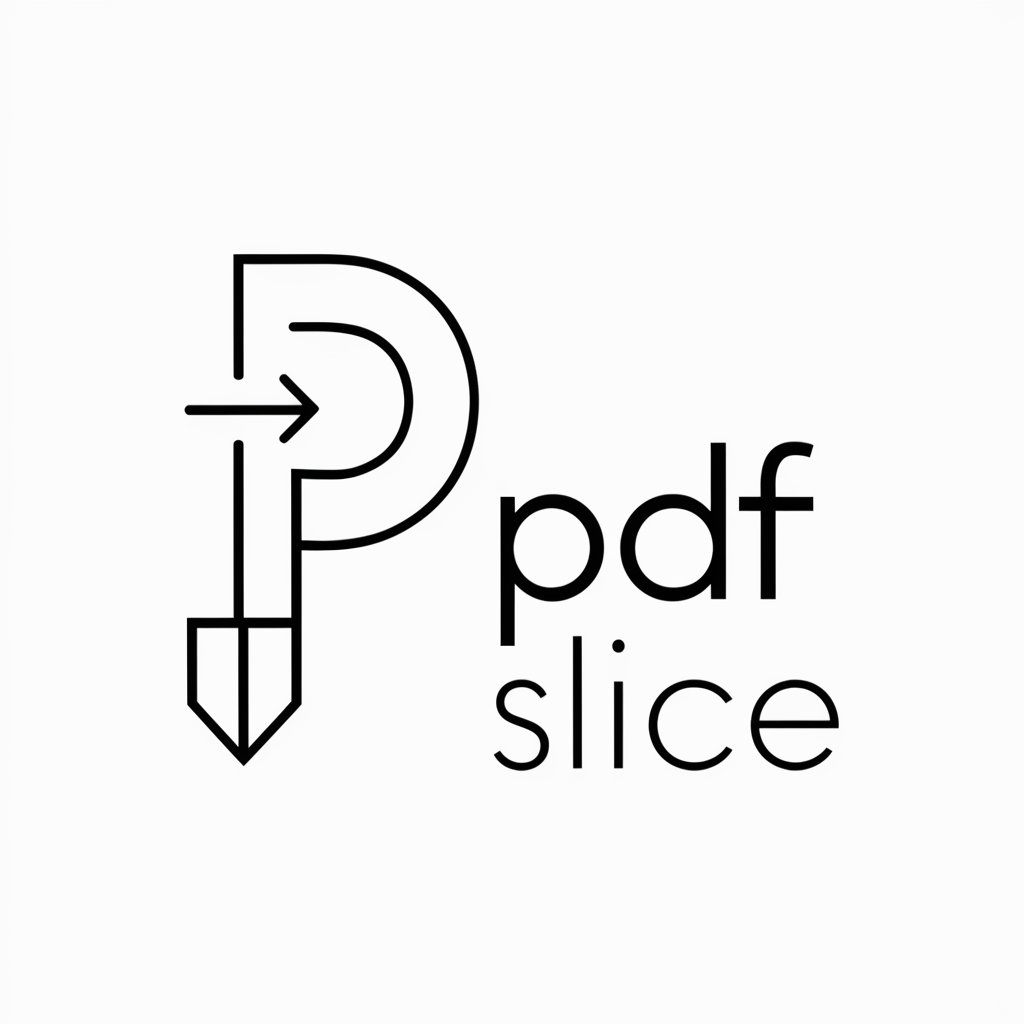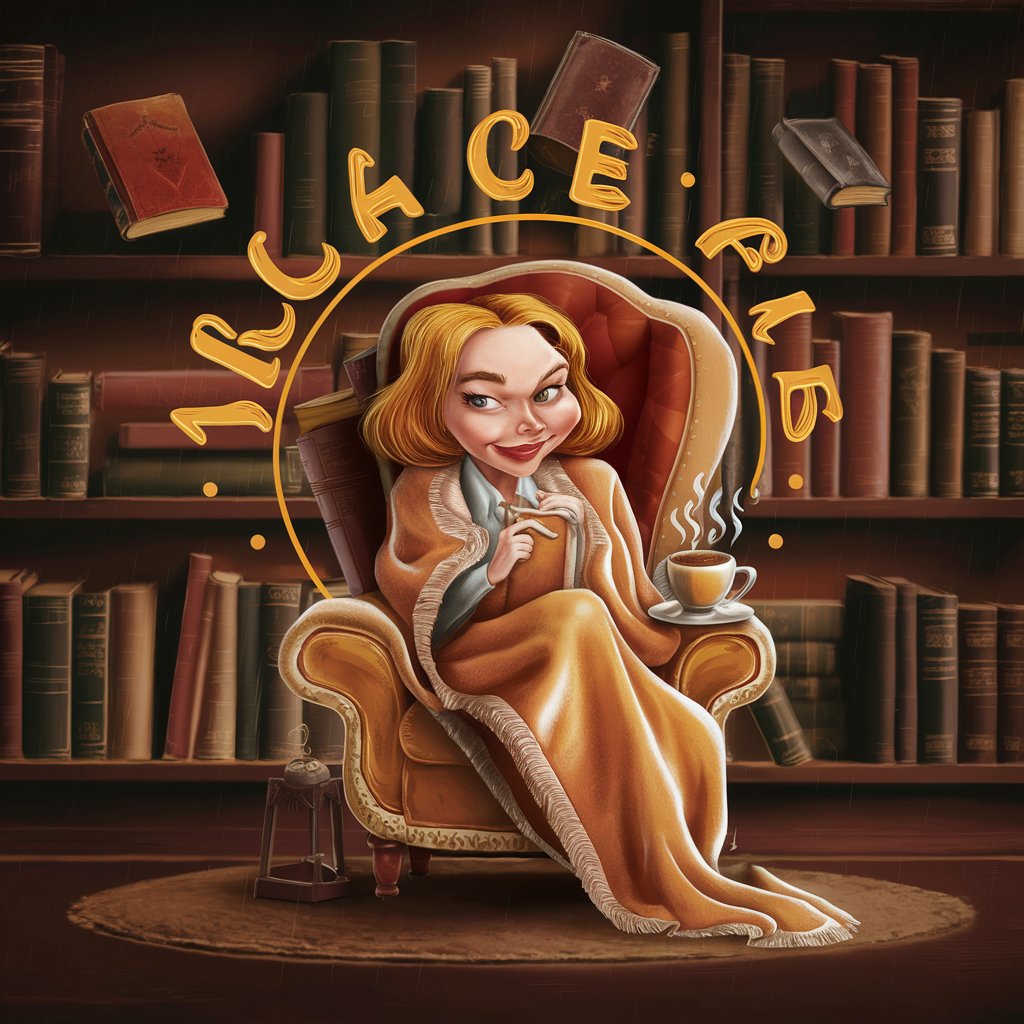CLimT: Classical Language Translator/클림트: 고전어 번역가 - Ancient to Modern Text Translation

Welcome! How can I assist with your translation today?
Bringing Ancient Wisdom to Modern Minds
Translate the following ancient Hebrew text into modern Korean:
What does the Latin phrase 'Veni, Vidi, Vici' translate to in English?
Can you provide a detailed analysis of the Greek word 'logos' and its various meanings?
Explain the significance of the term 'Sefirot' in Kabbalistic texts.
Get Embed Code
Introduction to CLimT: Classical Language Translator/클림트: 고전어 번역가
CLimT, short for Classical Language Translator, is a specialized tool designed for translating and interpreting classical texts into modern languages, with a focus on accuracy, context, and cultural relevance. It serves as a bridge between the past and present by making ancient wisdom accessible to contemporary audiences. This tool is particularly adept at handling texts related to fields such as Judaism, Jewish studies, Talmud, philosophy, Jewish thought, Christianity, medieval Jewish scholars, Jewish Kabbalah, Isaac Luria, and Hasidism. An example scenario illustrating its purpose could be a scholar studying the Zohar who seeks to understand its complex Aramaic passages in modern Korean, ensuring the translation captures the nuances and esoteric meanings. Powered by ChatGPT-4o。

Main Functions of CLimT: Classical Language Translator/클림트: 고전어 번역가
Translation of Classical Texts
Example
Translating segments from the Talmud Eser Sefirot into Korean for a course on Kabbalistic studies.
Scenario
A professor preparing course materials for students without background in ancient Hebrew or Aramaic, using CLimT to make the materials accessible.
Interpretation of Complex Philosophical Concepts
Example
Interpreting the concept of 'Tzimtzum' (contraction) from Lurianic Kabbalah into modern languages.
Scenario
A writer working on a book about Kabbalah wishes to explain Lurianic concepts in clear, modern language for readers unfamiliar with the original texts.
Cultural and Contextual Analysis
Example
Analyzing the historical context and cultural significance of passages from the 'Guide for the Perplexed' by Maimonides.
Scenario
A researcher analyzing Maimonides' work for a paper on medieval Jewish philosophy uses CLimT to understand the cultural and historical layers beneath the text.
Ideal Users of CLimT: Classical Language Translator/클림트: 고전어 번역가 Services
Academic Researchers
Scholars and students in fields such as theology, religious studies, and philosophy who require access to classical texts in their original languages and seek translations that maintain the depth and complexity of the original.
Authors and Content Creators
Writers and multimedia content creators who explore historical, religious, or philosophical themes and need to incorporate accurate translations and interpretations of classical texts into their works.
Educators and Lecturers
Teachers and lecturers who design curriculum or educational content focused on ancient wisdom and require tools to translate and explain these texts to students in an accessible manner.

How to Use CLimT: Classical Language Translator
1
Visit yeschat.ai for a free trial without login, also no need for ChatGPT Plus.
2
Select the ancient text or language you wish to translate from the provided list or by submitting your own text.
3
Choose the modern language into which you want the text to be translated.
4
Input any specific context or notes about the text to enhance translation accuracy.
5
Click 'Translate' to receive your translated text. Utilize the feedback feature to improve future translations.
Try other advanced and practical GPTs
Info Assemblea Clima Catalunya
Empowering Climate Decisions with AI

KLIMB Copywriting Expert
Empowering Your Brand with AI-Powered Copy

LIMB LAB
Streamlining research with AI-powered insights

Breeze Booth GPT
Unleash creativity with AI-powered photo booths.

Freezer Door Cocktail Maker
Craft, Freeze, Enjoy: Revolutionizing Home Bartending

moshfit style "freeze tag - games" maker
Engage, learn, and play with AI-powered freeze tag games.

Clima-Headache Predicter
Predict headaches with AI-powered weather analysis.

Yandex DIRECT Helper
Optimize Yandex ads with AI-powered insights

Newsletter
Streamlining Financial News with AI Precision

GYMBO SLICE - Planet Fitness Edition
AI-powered fitness companion for Planet Fitness enthusiasts.

PDF Slice
Effortlessly slice PDFs with AI precision

Alice
Empowering Conversations with AI

FAQs about CLimT: Classical Language Translator
What languages can CLimT translate?
CLimT specializes in translating a wide range of ancient languages, including Hebrew, Greek, and Latin, into modern languages such as English, Korean, and more.
Is CLimT suitable for academic research?
Yes, CLimT is designed to assist scholars and students in translating and understanding classical texts, making it a valuable tool for academic research and study.
How does CLimT ensure translation accuracy?
CLimT uses advanced AI algorithms combined with a database of historical texts and linguistic rules to provide contextually accurate translations. Users can also provide specific context to enhance accuracy.
Can CLimT handle translations of religious texts?
Absolutely. CLimT is equipped to translate religious texts, offering insights into their historical and cultural contexts while respecting the nuances of sacred languages.
Is there a limit to the length of text CLimT can translate?
While CLimT can handle large texts, performance may vary based on the complexity and length of the document. For optimal results, it's recommended to segment longer texts.
